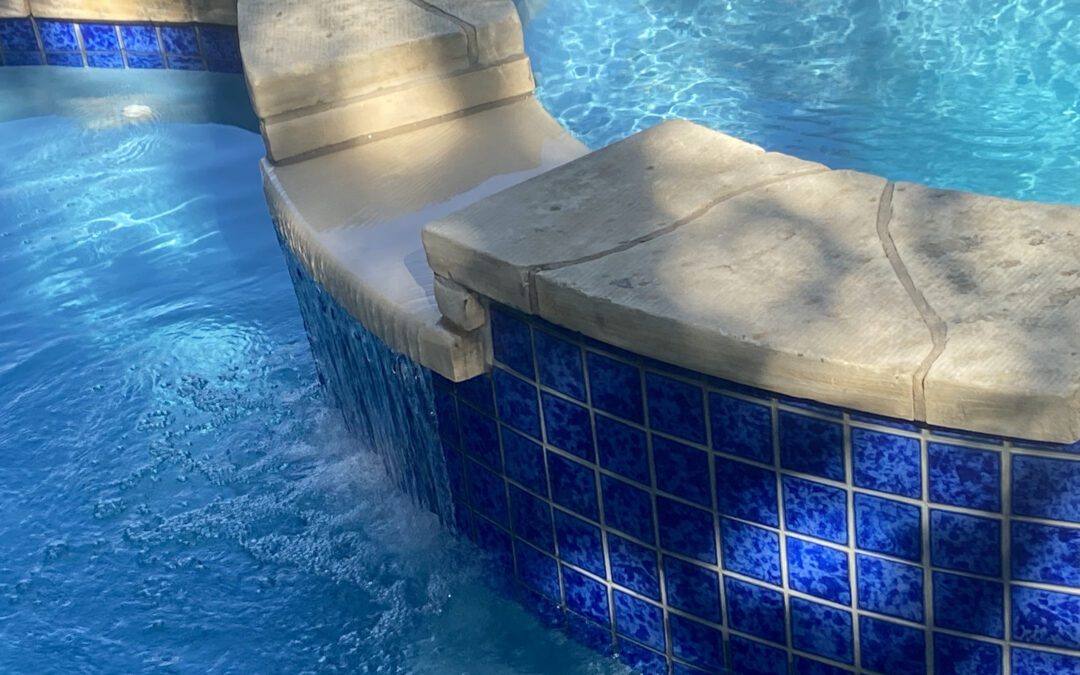Swimming pools are a backyard luxury—but when something goes wrong, they can quickly become a costly headache. One of the most common (and frustrating) problems pool owners face is a water leak. Whether it’s a hidden crack in the pool shell, faulty plumbing, or evaporation masked as something more, identifying and fixing a leak early can save you thousands in damage and wasted water.
In this comprehensive guide, we’ll teach you how to test for a pool leak at home, recognize the warning signs, and understand when to call in the pros—especially if you’re in the Austin area where leaky pool repair Austin services are in high demand due to hot weather and high pool usage.
Why Pool Leak Detection Should Be a Priority
Leaks may start small, but over time they become major issues. A minor leak can cause:
- Increased water bills
- Damage to the pool’s structural integrity
- Soil erosion beneath and around your pool deck
- Unbalanced water chemistry due to frequent refilling
- Mold, algae, and mildew problems
In Austin’s heat, it’s easy to dismiss water loss as simple evaporation. But while the average pool can lose ¼ inch of water per day due to evaporation, more than that is a red flag. If your pool is losing over ½ inch daily, there’s a good chance you have a leak that needs urgent attention.
Top Signs You Might Have a Pool Leak
Not sure if you’re dealing with normal water loss or something more serious? Watch out for these signs:
- Unusually high water bills
- Refilling the pool more than once a week
- Air bubbles in the return jets
- Visible cracks in the pool or tiles
- Water pooling near the equipment pad
- Soggy spots or erosion around the deck
- Algae growth despite chemical treatments
- Noise or hissing from plumbing equipment
The earlier you catch these signs, the easier (and cheaper) it will be to fix the problem.
DIY Pool Leak Testing: A Step-by-Step Guide
1. The Bucket Test (Evaporation vs. Leak)
The bucket test helps you determine if you’re losing water to natural evaporation or a leak.
How to Do It:
- Grab a 5-gallon plastic bucket and fill it with pool water (leave a few inches at the top).
- Place the bucket on a step inside your pool so the water inside the bucket is at the same level as the pool water outside.
- Use tape or a waterproof marker to mark the water levels inside the bucket and outside on the pool wall.
- Turn off pool equipment and let the pool sit undisturbed for 24–48 hours.
- Compare the water loss inside the bucket with the pool’s level.
Results:
- If both levels drop equally, it’s likely just evaporation.
- If the pool’s water level drops more than the bucket, it suggests a leak.
2. Inspect Pool Equipment
Leaks often originate from pool systems—particularly pumps, filters, heaters, and pipes. You can visually inspect for:
- Wet or moist patches near the equipment pad
- Drips or splashes from fittings and connections
- Bubbling or gurgling sounds
- Air getting into the system (causing cloudy water or reduced circulation)
These are clear signs of equipment-related leaks and should be addressed promptly. For complex diagnostics, you may need expert help. In the local area, swimming pool leak detection Austin TX services offer pressure testing and advanced leak tracking tools to pinpoint underground or plumbing system issues.
3. Use the Dye Test for Crack Detection
What You Need:
- Pool leak detection dye (or food coloring)
- Goggles for underwater visibility
Instructions:
- Turn off all circulation equipment to keep the water still.
- Get in the pool and squirt dye near suspicious areas: skimmers, return jets, pool lights, steps, tile lines, or visible cracks.
- Watch the dye’s movement. If it gets sucked into a crack, you’ve likely found your leak.
The dye test works best in calm water and when you’re targeting specific suspected areas. Be methodical and inspect one area at a time.
4. Examine the Pool Structure
Different pool types have different weak spots:
- Concrete Pools – prone to cracks in the plaster or along tile grout lines.
- Vinyl Pools – look for tears, holes, liner separations at seams or around fittings.
- Fiberglass Pools – watch for bulging, blistering, or fine cracks, especially around jets and lights.
Even minor cracks can lead to serious leaks over time. Don’t ignore surface damage—it may be the entry point for larger issues.
5. Isolate the Plumbing System
Still unsure where the leak is? Try isolating the plumbing system:
- Plug return lines, skimmers, and main drains using specialized plugs.
- Monitor water levels after sealing.
- If the leak stops, your plumbing is likely the source.
This test requires some equipment and pool-specific knowledge. It’s often faster and more reliable to call professionals like McTarga Pools Leak Detection Austin, Texas – Pool Repairs & Remodeling Services, who offer pressure testing and electronic leak detection services.
Extra Tips for Leak Detection Accuracy
- Perform tests during dry, still weather—no rain or heavy winds.
- Avoid swimming during testing periods.
- Keep pets and children out of the pool while monitoring.
- Record exact measurements and recheck at the same time each day.
- Retest if you’re unsure—repetition improves reliability.
Why You Should Hire a Professional Leak Detection Company
If you’ve done all the home tests and still suspect a problem, don’t delay repairs. Leak damage compounds quickly and can undermine your pool’s foundation. Licensed pool leak specialists in Austin use:
- Acoustic listening devices
- Electronic leak locators
- Infrared thermography
- Underwater scuba inspections
- Pressure testing for plumbing lines
Professional services not only locate the leak faster, but they also repair it correctly the first time, saving you time and long-term expenses.
Prevent Future Leaks with Routine Care
- Schedule annual inspections by a qualified technician
- Repair cracked tiles, coping, and plaster promptly
- Keep water chemistry balanced to avoid corrosion and liner damage
- Winterize your pool properly if not used year-round
- Upgrade aging equipment with leak-resistant fittings
Proactive maintenance prevents small leaks from turning into costly repairs.
Need Pool Leak Repair in Austin, TX?
At McTarga Pools Leak Detection Austin, Texas – Pool Repairs & Remodeling Services, we specialize in fast, accurate pool leak detection and complete repair solutions for residential and commercial pools. Whether you’re dealing with a minor crack, faulty plumbing, or a mysterious drop in water levels, our experienced team is equipped with the tools and technology to fix it right.
We proudly serve the Austin area with top-rated services in:
- Pool Leak Detection
- Structural Leak Repairs
- Skimmer and Return Line Repairs
- Pool Remodeling & Resurfacing
- Plumbing & Equipment Diagnostics
For reliable leaky pool repair Austin homeowners can trust, give us a call today at (512) 998-1188.
Don’t wait—save water, save money, and protect your pool investment with McTarga Pools.


